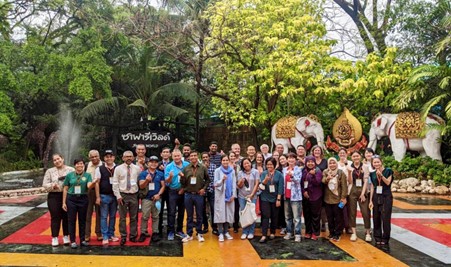
Global treaty on pandemic prevention, preparedness & response
The Office of the Chief Veterinary Officer (OCVO) is contributing to Australia’s negotiating position on the development of a global treaty on pandemic prevention, preparedness and response. OCVO is advocating strongly to include One Health as a foundational and guiding principle of the treaty, with a particular focus on ensuring it adequately recognises the drivers of pandemic emergence and contains meaningful provisions to prevent future pandemics.
Current pandemic management strategies focus on responding to diseases after their emergence. Australia is keen to see this new instrument be used to better position member states to implement upstream measures that reduce the emergence of new pathogens with pandemic potential. OCVO is also advocating for explicit reference to the Quadripartite’s leadership and governance role in pandemic prevention, preparedness and response. This includes a provision to specifically include the World Organisation for Animal Health (WOAH) in the governance and implementation of the instrument.
Negotiations on the zero draft of the pandemic treaty progressed at the Intergovernmental Negotiating Body meeting in Geneva from 27 February to 3 March. A final draft of the instrument will be provided to the World Health Assembly in May 2024.
Australia’s Focal Points to the WOAH
A World Organisation for Animal Health Delegate can nominate individuals as National Focal Points to help improve communication between national veterinary services and the WOAH. At present, Australia has eight National Focal Point positions providing considerable expertise and networks in the following fields: -disease notification, veterinary products, communication, veterinary laboratories, aquatic animals, food safety, animal welfare, and wildlife.
Australia’s Focal Points engage frequently with WOAH, contributing to regional animal health activities. For example, in February Dr Samantha Ellis (representing the Focal Point for Veterinary Products) attended the WOAH Asia Pacific Animal Antimicrobial Use Global Database workshop in Bangkok. Dr Ellis received training and shared her experiences in antimicrobial usage data collection and visualisation. Wildlife Health Australia’s Dr Tiggy Grillo attended and presented at the training workshop for Wildlife Focal Points in the Asia Pacific Region, held in Bangkok in February. The workshop provided knowledge on reporting procedures, and the surveillance systems and capabilities needed to manage wildlife diseases.

